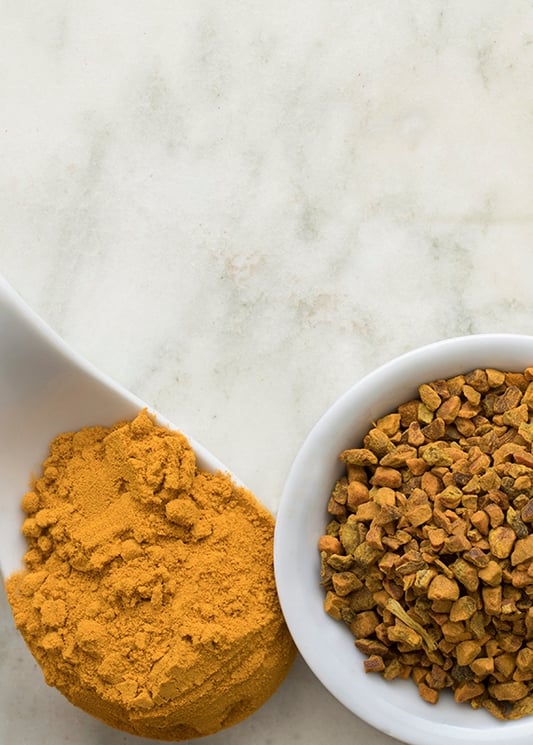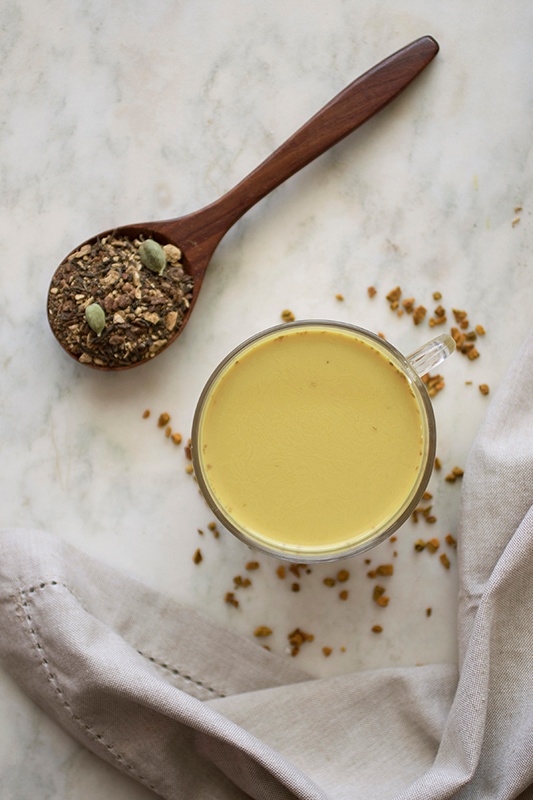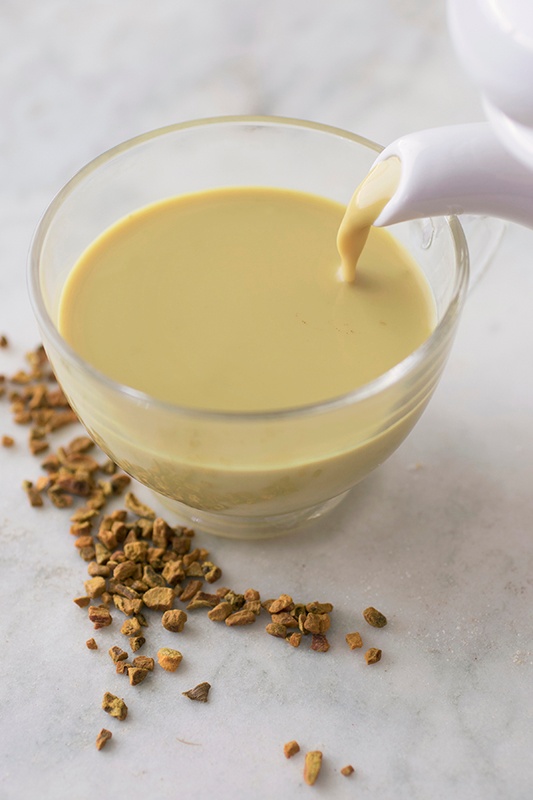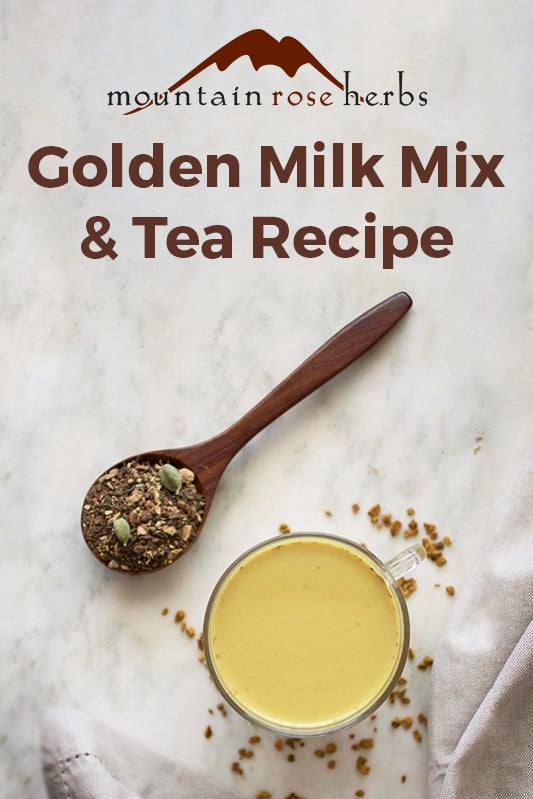Haldi—or turmeric, as we know it—has been used as a beneficial herb for thousands of years. Ayurvedic practitioners consider turmeric to be important for overall good health and have traditionally used it to support joint mobility, digestion, and circulation, among other bodily processes.* Haldi doodh (haldi=turmeric and doodh=milk), sometimes referred to as “golden milk,” is a sippable turmeric infusion that offers an exceptional and traditional way to enjoy the benefits of turmeric—but the spice blend used in this beverage can be enjoyed in countless other ways as well!
Traditional Golden Milk Benefits
Traditionally, haldi doodh is simply milk simmered with some turmeric and an optional sweetener like honey or sugar. One of the challenges of harnessing the benefits of turmeric is that curcumin—a component renowned for its antioxidant properties—is not particularly water-soluble and is slowly absorbed. The answer to this dilemma? Many families also add black pepper. This combination of fat, black pepper, and heat increases the bioavailability of the curcumin in the turmeric. Studies have shown that taking turmeric with piperine, the major component of black pepper, can increase the bioavailability of the curcumin by as much as 2000%! Note here that the same principle applies to Indian curries, in which turmeric, ghee, and pepper play key roles.
Similarly, researchers found that simmering the haldi doodh can increase the solubility of curcumin twelvefold. And, because turmeric is fat-soluble, the milk fat acts as a perfect medium to help our bodies better absorb the curcumin. If you are nondairy, unsweetened coconut milk, soy milk, and nut milks are good alternatives (based on fat content, almond, cashew, hazelnut, and macadamia are top choices in nut milks).
Chai Golden Milk Spice Blend
Perhaps you’ve had the chance to try a “golden milk latte” at the local coffee stand: a hot, yellow, foamy confection of a drink made with chai spices, dairy or non-dairy milk, just enough turmeric to color the drink, and generally a fair amount of sugar. This western coffee-shop facelift is a far cry from traditional haldi doodh and lacks most of the healthful benefits that make the drink a favorite in Ayurvedic medicine. But the latte crowd is onto something with the addition of those delicious spices. Adding ginger, cinnamon, and cardamom makes good sense, since they have notable antioxidant properties of their own, and they significantly boost the delicious flavor of warm golden milk. Best of all, a spiced golden milk powder blend can also double as a seasoning or flavor enhancer to an incredible range of other sweet and savory recipes as well (check out some ideas below).

Golden Milk Powder Recipe
Makes about 1/4 cup powder.
Ingredients
- 3 Tbsp. organic ground turmeric
- 2 tsp. organic ground ginger
- 2 tsp. organic ground cinnamon
- 1/2 tsp. organic ground black pepper
- 1/4 tsp. organic ground cardamom
Directions
- Combine spices.
- If making ahead, store in an airtight container away from heat and sunlight.
Spiced Golden Milk (Haldi Doodh) Recipe
Makes 1 cup.
Ingredients
- 1 tsp. golden milk powder blend (see above)
- 1 cup organic milk or alternative milk of choice
- Sweetener of choice, to taste—I prefer raw, local honey
Directions
- Whisk golden milk powder with 1 cup milk of choice in a saucepan.
- Bring to a simmer over medium-low heat. Allow to simmer for at least a couple of minutes, and up to 10 minutes to increase solubility of curcumin.
- Stir in sweetener of choice—if using honey, make sure not to add to milk hotter than 115° F.
- Enjoy while hot or put in refrigerator to cool and then serve over ice.
Pro Tips
- If this blend has too much turmeric for your taste, it’s A-OK to add less. All the spices can be adjusted to your palate.
Other Ways to Use Golden Milk Powder
- Add a bit to your rice cooking water for delicious Indian-style flavor.
- Add a pinch to scrambled eggs, frittatas, or tofu scrambles.
- Sprinkle on squash and roast in the oven or blend into soup.
- Mix in a pinch with your yogurt.
- Make a golden milk smoothie or milkshake.
- Incorporate into pancakes, oatmeal, or other breakfast goodies.
Want to learn more about Ayurvedic herbs?
Discover 7 Ayurvedic Herbs for Joy, Vitality & Peace of Mind
You may also enjoy:
- Vegan Golden milk Ice Cream Recipe
- No-Bake Golden Milk Energy Bites
- Tasty Turmeric Chai: Recipes and Uses
* This statement has not been evaluated by the Food and Drug Administration. This product is not intended to diagnose, treat, cure, or prevent any disease. For educational purposes only.













